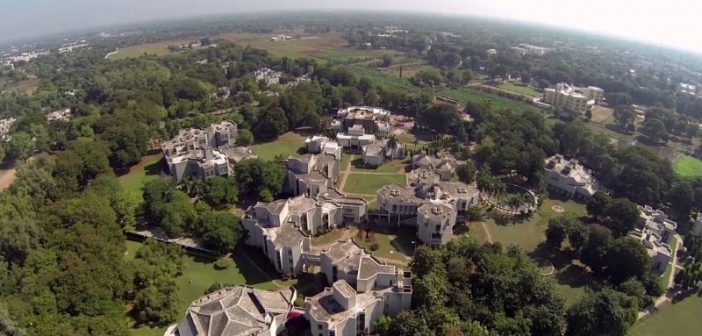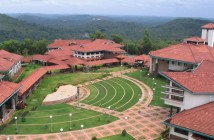The Institute of Rural Management, Anand (IRMA), a pioneering institute in rural management education and research was set up in 1979 by the Father of the White Revolution, Dr. Verghese Kurien. Apart from the 2 year residential PGDRM, it also has a doctoral program and a certificate course.
The Admission process started for IRMA’s Post-Graduate Diploma in Rural Management (PGDRM) from October 1. Here is a step-by-step guide to filling up the application form.
IRMA accepts applications in both online and offline modes. Prior to starting the registration process, you have to check the eligibility criteria.
Eligibility Criteria
The Institute specifies that candidates should possess a recognised graduation degree with minimum 50% of marks (45% for SC/ST/DAP candidates). They must also have valid CAT 2016 or XAT 2017 scores.
Starting the Process
The first step in initiating the application process through the online method is to ensure that you have following documents/information ready.
A valid email ID; CAT 2016 or XAT 2017 Registration Number; valid credit/debit card.
Personal information and academic details are required along with scanned or digital copy of your photograph and signature. Recommended resolution for scanned photograph is (150 X 180) pixels (use stamp size photograph) and recommended resolution for scanned signature is (150 X 70) pixels.
If you are not able to proceed further, please ensure that you have turned off “popup-blocker” in your browser’s option settings.
The first step is to create a log-in id and password. For this, you need to enter the email id following which the password would be sent to your email.
Once you log in to the new account, the first section of the form will appear on the screen with columns requiring you to fill in personal information. Please ensure that you fill your name, address, category and other particulars correctly. At this stage, you have to select the fee payment mode. Once you fill in the all the particulars, click on the Next tab.
This screen will show the eligibility criteria, on the basis of your category, which you have entered in the previous step. Check the criteria, enter your education details, percentage, and fee mode details as required and click on the Next tab for further steps.
Application Fees
The application fee for IRMA 2017 for General & OBC candidates is Rs. 1200, while for SC/ST/DAP candidates it is Rs. 600. The entire application fee for candidates belonging to Below Poverty Line (BPL) will be waived off.
In the next step, you are required to add your XAT or CAT registration number, along with details about your income and test centre. Once you fill in all the details, click on the Next tab.
This screen will show all the details entered by you so far. Carefully, check all the entries as this would be the last chance to edit any of the details. Once you are satisfied that everything is in order, move to the final stage.
In the last and final step, you are required to upload your photo and signature in the dimension as stated. Once you the images are uploaded, click on Submit button. You will receive an acknowledgement on your registered e-mail.
How to Apply in Offline Mode
The application process started from October 1, 2016, in both online and offline modes. The offline process will continue till December 23 and the online window will close on December 30.
Candidates opting for IRMA 2017 offline application can get the application form from the IRMA admission office by sending the fee by cash or cheque at the following address: Admissions Office, Institute of Rural Management Anand (IRMA), Anand – 388 001, Gujarat.
The admission office will send the application form, prospectus and sample question paper of ‘Issues of Social Concern’ test to the candidates by post.
The candidates will have to appear for an exam scheduled to be held on February 12, 2017.
A Valued Program
PGDRM is recognised as equivalent to a Master’s degree by the Association of Indian Universities (AIU) and approved by the All India Council for Technical Education (AICTE).
It is highly valued among local, national and international cooperatives, NGOs, development organisations, and funding agencies. All participants get placed in different organisations through campus placement.




